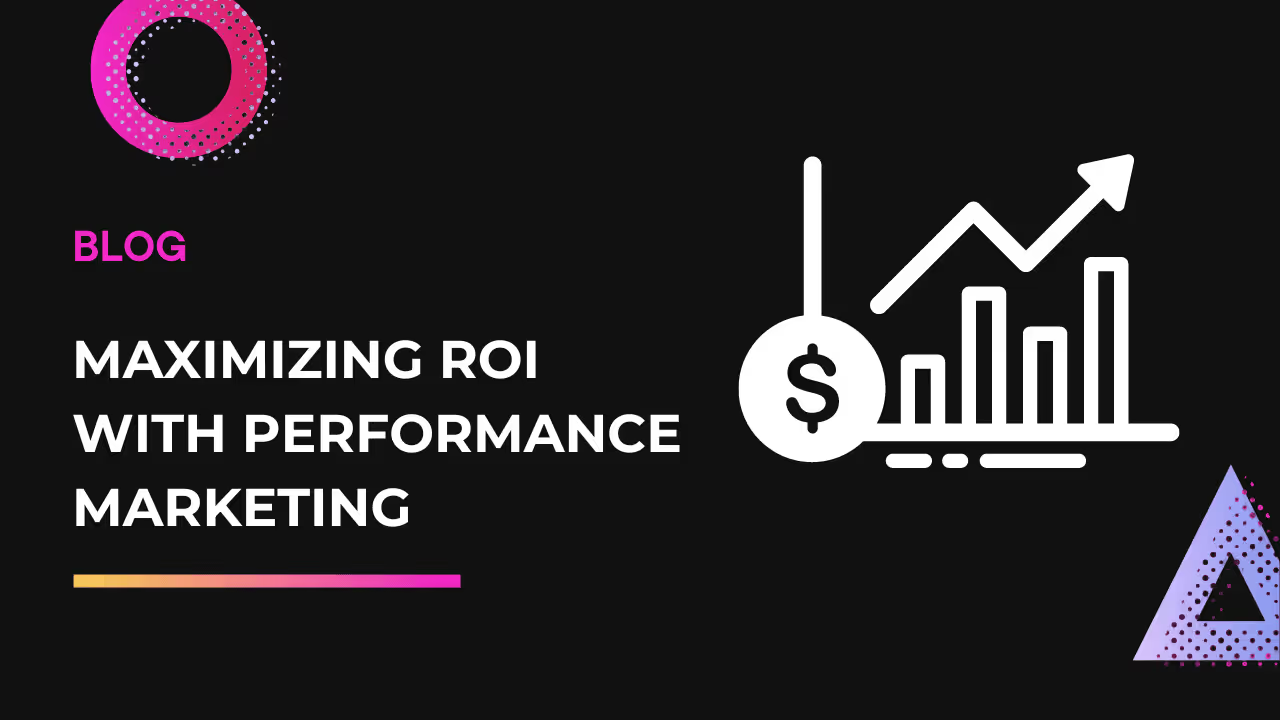In today's competitive marketplace, businesses need to do everything they can to maximize their return on investment (ROI). One of the most effective ways to do this is through performance marketing strategies.
What is performance marketing?
Performance marketing is a type of marketing strategies that focuses on driving measurable results. This means that businesses only pay for marketing when they get a desired result, such as a website visit, a lead, or a sale.
There are a number of different ways to do performance marketing strategies. Some of the most common methods include:
- Search engine marketing (SEM): SEM is a type of online advertising that allows businesses to place their ads on search engine results pages (SERPs). When someone searches for a keyword or phrase that is relevant to your business, your ad may appear at the top of the SERPs. This is a great way to reach potential customers who are already interested in what you have to offer.
- Social media marketing: Social media is a powerful tool that businesses can use to connect with potential customers and promote their products or services. By creating engaging content and sharing it on social media, businesses can reach a large audience and drive traffic to their website.
- Email marketing: Email marketing is a great way to stay in touch with existing customers and promote new products or services. By sending regular emails with valuable content, businesses can build relationships with their customers and encourage them to continue doing business with them.
- Performance marketing strategies can be a very effective way to reach new customers, generate leads, and drive sales. However, it is important to note that performance marketing is not a magic bullet. In order to be successful, businesses need to have a clear understanding of their target audience, develop effective marketing campaigns, and track their results carefully.

Why is performance marketing important?
Performance marketing is important for a number of reasons. First, it allows businesses to track the effectiveness of their marketing campaigns. This information can then be used to improve campaigns and get a better return on investment.
Second, performance marketing strategies can help businesses reach a wider audience. By using a variety of marketing channels, businesses can reach potential customers who may not be aware of their products or services.
Third, performance marketing strategies can help businesses generate leads and sales. By driving traffic to their website and converting visitors into leads and customers, businesses can grow their business and increase their profits.
In today's competitive marketplace, businesses need to do everything they can to get their message in front of potential customers. Performance marketing is a powerful tool that can help businesses reach their target audience, generate leads, and drive sales.
Here are some of the benefits of performance marketing strategies:
- Measurable results: Performance marketing campaigns are designed to generate measurable results, such as website traffic, leads, or sales. This allows businesses to track the effectiveness of their campaigns and make adjustments as needed.
- Reach a wider audience: Performance marketing campaigns can be used to reach a wider audience than traditional marketing methods, such as print or television advertising. This is because performance marketing campaigns can be targeted to specific demographics and interests.
- Generate leads and sales: Performance marketing campaigns can be used to generate leads and sales. This is because they are designed to reach potential customers who are already interested in what the business has to offer.
With performance marketing strategies, you can track the effectiveness of your campaigns and make adjustments as needed. This will help you get the most out of your marketing investment.
How to maximize ROI with performance marketing
There are a number of things that businesses can do to maximize ROI with performance marketing strategies. Some of the most important tips include:
- Set clear goals: The first step to maximizing ROI with performance marketing is to set clear goals for your marketing campaigns. What do you want to achieve with your campaigns? Do you want to increase website traffic, generate leads, or drive sales? Once you know what you want to achieve, you can start to develop strategies to help you reach your goals.
- Target the right audience: Another important strategy for maximizing ROI with performance marketing is to target the right audience. Not all marketing campaigns are created equal. Some campaigns will be more effective for certain audiences than others.
- When you're developing your marketing campaigns, take the time to research your target audience and make sure you're reaching the right people with your message.
- Use the right channels: There are a number of different marketing channels that businesses can use to reach their target audience. Some of the most popular channels include search engine marketing (SEM), social media marketing, and email marketing. When you're developing your marketing campaigns, choose the channels that are most likely to reach your target audience and deliver the results you want.
- Measure your results: It's important to measure the results of your marketing campaigns so you can see what's working and what's not. This will help you make adjustments to your campaigns as needed and ensure that you're getting the most out of your investment.
- Use data to make decisions: Performance marketing is all about data. The more data you have, the better decisions you can make about your marketing campaigns. Make sure you're collecting data on things like website traffic, leads, and sales. This data will help you identify what's working and what's not, and make adjustments to your campaigns as needed.
- Experiment and iterate: Don't be afraid to experiment with different marketing strategies and tactics. The best way to find what works for your business is to try different things and see what results you get. Once you find something that's working, keep doing it. And if something's not working, don't be afraid to change it up.
- Partner with a performance marketing agency: If you don't have the time or resources to manage your own performance marketing strategies, consider partnering with an agency. A good agency can help you develop and execute effective campaigns that will help you reach your goals.

Latest trends in performance marketing
Performance marketing is a constantly evolving field, with new trends emerging all the time. Here are some of the latest trends to watch in 2023:
The Power of Social Media: Social media platforms have become vital channels for performance marketing strategies. They offer businesses the opportunity to expand their reach, engage with potential customers, and drive sales. Through paid advertising campaigns, compelling content creation, and collaborations with influencers, businesses can leverage the power of social media to connect with their target audience effectively.
Harnessing the Power of Data: Data-driven marketing is gaining momentum as businesses recognize the value of utilizing data to optimize their campaigns. By analyzing data, businesses can track the effectiveness of their marketing efforts, identify areas for improvement, and make data-backed decisions. This includes tracking website traffic, lead generation, sales conversions, and audience segmentation for more targeted marketing campaigns.
Programmatic Advertising: Programmatic advertising, powered by automation and algorithms, is revolutionizing the way businesses approach advertising. With programmatic advertising, businesses can reach their target audience more precisely and efficiently by leveraging data to personalize their ad placements based on demographics, interests, and past behaviors.
The Influence of Influencer Marketing: Influencer marketing has witnessed a significant surge in popularity, offering businesses an effective way to connect with a broader audience and build trust. Partnering with influencers allows businesses to tap into their followers' trust and authenticity, creating sponsored content, giveaways, or contests that resonate with the influencer's audience and promote brand awareness.
The Dominance of Mobile Marketing strategies: As mobile devices continue to dominate the digital landscape, mobile marketing has become an essential aspect of performance marketing. Businesses must optimize their websites and landing pages for mobile devices, utilize push notifications to engage with users, and leverage mobile advertising channels to capture the attention of potential customers on the go.
In addition to the trends mentioned above, here are some other trends that are expected to have a significant impact on performance marketing in 2023:
Artificial Intelligence (AI)
Artificial intelligence (AI) is rapidly becoming a key component of performance marketing. AI can be used to improve all aspects of a campaign, from targeting and bidding to optimization. For example, AI can be used to:
- Analyze data to identify patterns that would be difficult for humans to spot.
- Target ads more effectively to reach the right people at the right time.
- Optimize campaigns to improve results.
- As AI continues to develop, it is likely to play an even greater role in performance marketing. Businesses that embrace AI will be well-positioned to succeed in the future.
Privacy
As consumers become more concerned about their privacy, businesses will need to find ways to collect and use data in a way that is both effective and compliant with privacy regulations. For example, businesses can:
In order to protect individual consumers' privacy, businesses can utilize anonymized or aggregated data to create audience segments within marketing strategies. This allows for targeted marketing efforts without compromising the personal information of individuals. Additionally, obtaining explicit consent from consumers before collecting or using their data is crucial in respecting their privacy rights. By being transparent and clear in explaining how data will be used, businesses can establish trust and build loyalty with their customers.
Omnichannel Marketing
Consumers are increasingly using a variety of channels to interact with businesses. To reach these consumers, businesses will need to create marketing campaigns that are integrated across channels. Here are some marketing strategies that businesses can employ:
- Use a combination of email marketing, social media marketing, and paid advertising to reach their target audience across multiple channels.
- Create a seamless experience for consumers that moves them seamlessly from one channel to the next.
- Personalize their marketing messages to each channel.
- By integrating their marketing campaigns and marketing strategies across channels, businesses can create a more engaging and effective experience for their customers.
By understanding the latest trends in performance marketing strategies, businesses can stay ahead of the curve and ensure that they are using the most effective strategies to reach their target audience and achieve their marketing goals.
Conclusion
Performance marketing is a powerful tool that businesses can use to reach their target audience, generate leads, and drive sales. By following the tips and marketing strategies outlined in this article, businesses can maximize ROI with performance marketing strategies and achieve their marketing goals.
To keep up to date with marketing analytics, tools like Dataslayer can be invaluable. By consolidating marketing data into one place like Google Sheets, Looker Studio, Power BI, Big Query etc and automating reporting, Dataslayer saves time and provides clarity. It helps you focus on strategy while keeping track of engagement and conversions, ensuring you get the full picture of your campaigns’ performance.







